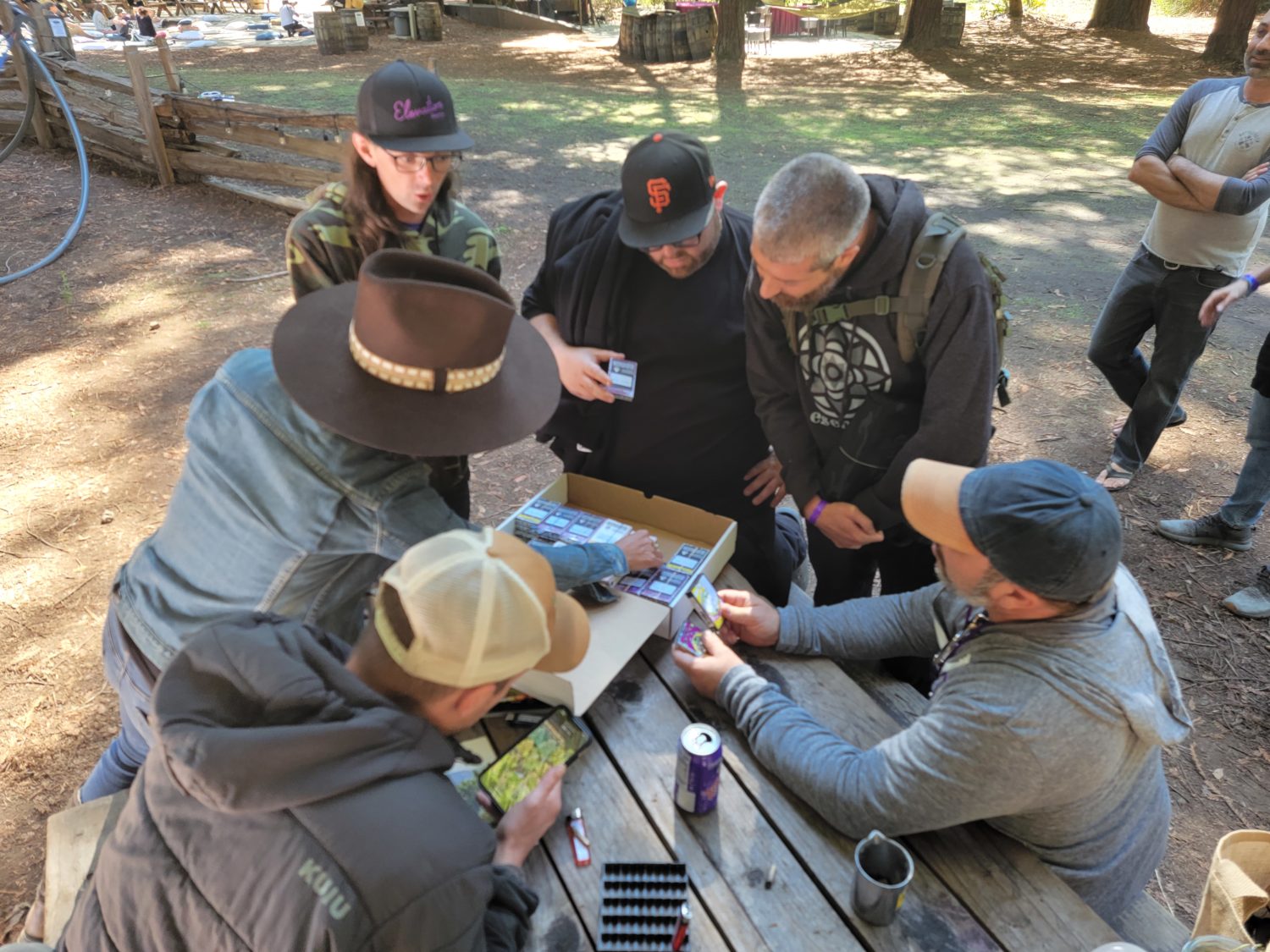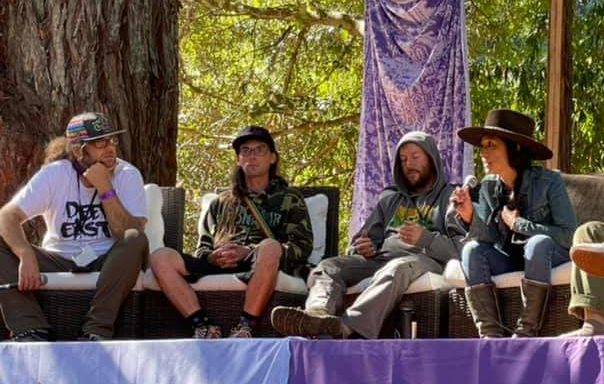At this year’s third in-person edition of Meadowlands, L.A. Weekly had the opportunity to lead a discussion on the regenerative farming supply chain and the work to preserve small craft cannabis farmers in California.
The panel included great local takes from Moon Made Farms, HappyDay Farms and Equilibrium Genetics. Representatives from the manufacturing and retail side chimed in as well.
The conversation started with the perils of being a farmer that cared about the land trying to make it through a pandemic.
“It’s really been just going back to basics to really balance the time on the farm with the time actually spent being in connection with downstream partners, with fostering relationships, being in touch and being honest. I’d rather just have my hands in the dirt,” HappyDay Farms founder Casey O’Neill told the crowd. HappyDay Farms has won the Emerald Cup’s regenerative farming award.
O’Neill went on to admit all those things keeping him out of the garden over the last 18 months were just a part of the journey. He felt that over the pandemic, the lack of on-the-subject gatherings equated to a lack of breath in the wider effort to create the best industry possible for small craft farmers moving forward. He called the weekend with his peers fostering the effort together in person a lung full of fresh air.
Moon Made Farms founder Tina Gordon told the crowd she learned a lot at every step of the process from seed to sale through the pandemic. Her real hopes lie in the idea that the wider collective conscious growth in society as people worked to better themselves during lockdown would transcend to those people hunting down the cannabis with the most positive impact on the ecosystem it was grown in.
From the retailer’s perspective, longtime San Francisco dispensary owner Martin Olive believes his staff represents the final link in the supply chain educating consumers on the “why” when it comes to supporting small farms. He argued the work his clientele put into bettering themselves during the pandemic has made it easier to show why they should support farmers like the ones that joined him on stage.
“I think having that intention to show people that there are ways to consume cannabis to support farmers that are growing positive intention. To not just do that through the cannabis, obviously, but also do it with the idea of emotional repairs is something that we promote very heavily and are so very proud to be working with our clients and a lot of intentional cultivators that grow in that mindset,” Olive said. “And then we take that mindset and educate people off the mountain, and show them this is a really good way to support these craft climbs.
The conversation moved on to an idea a lot of people argue about: That fewer middlemen in the process would likely result in higher quality products that eventually end up in the consumers’ hands. So just how important is a more effective direct-to-consumer mechanism in California right now to allow these small craft mom and pop farmers to have the best shot possible?
O’Neill noted that in addition to cannabis, HappyDay produces vegetables for the farmers market circuit. He argues in the era before legalization, the relationship-building process across the various produce he grows and cannabis was similar. People would return knowing what to expect. When the cannabis would leave O’Neill’s hands, he knew exactly the quality the product was in.
“I think the direct market is of absolute and total importance for small farms. And it was partially for the sales value of it which is important, but it’s more so for the development of those relationships because what I stand behind my table and represent is different than other farms,” O’Neill said.
Gordon took a positive approach off the bat but went on to admit it’s difficult to watch her product end up in the hands of someone that may not consider it their life’s work for the last eight months.
“None of us can do this alone. It’s an incredibly collaborative process, as it should be,” Gordon said.
Gordon picked up a copy booklet she had printed and told the crowd what it felt like to see her product go through the rest of the supply chain. After she held up the book, noting it represented finished flower, the first thing she did was rip off her logo and throw it on the ground.
“Then all of a sudden the name of the farm is removed, and it starts getting chopped up a little bit. And then, you know, the essence of the work done by the farm is all of a sudden stripped away. That’s gone,” Gordon said.
She went on to rip another piece off for storage, and then again for quality control before noting at that point it would likely end up in some packaging that isn’t recyclable or compostable. In the end, she would hold up a mangled version of her once classy farm literature. That is what it felt like when people who didn’t take as much care in the process damaged her work. The consumer doesn’t get to see the full print edition.
Another major topic of the day was the subject of mega-farms in the valley and Southern California continuing to come online, and their impact on the price point for farmers in the market. The hype new stains of each year are devalued by the next one when giant farms attempt to pump out by the literal ton whatever’s hot. The panel weighed in on why it’s important to have cutting-edge genetics to stay ahead of that flood.
Equilibrium Genetics founder Jason Matthys explained that each year, the new hype strains are a bit more related to last year’s.

There was a run on the seeds Matthys brought following the panel.
“It’s because there’s a narrower and narrower band of the genome that’s getting used and everything else is being discarded. It’s not just an extinction event of cannabis companies that’s going on, it’s genetics as well,” Matthys said. “That’s been a huge part of my work, just trying to collect as much as I possibly can.”
Matthys explained the things that keep him up at night are seeds from over a decade ago he hasn’t got the chance to pop.
“I’m praying that I’m gonna have time to sprout them and be able to work it into whatever I’m doing this year, and I did a lot of that this year,” Matthys said. “I’m always trying to breed with as much as I possibly can and obviously a portion of that is gonna be dedicated to high THC but I’m really trying to do diverse projects.”
O’Neill thinks the current high THC wave is very overrated. He spoke of his days as an Emerald Cup flower judge. The winners would regularly end up testing below 20% THC. Regardless of whatever the numbers said, they were best in the show. O’Neill mixes in the hype every year but continued to work genetics that have been in his family for 16 years.
Advertising disclosure: We may receive compensation for some of the links in our stories. Thank you for supporting LA Weekly and our advertisers.

